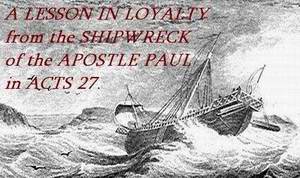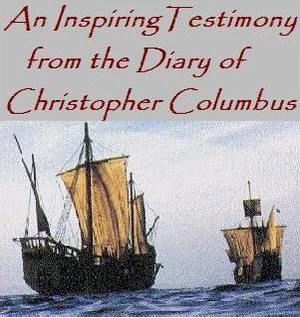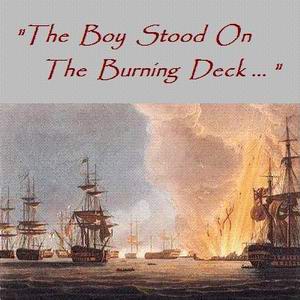
An essay by Gavin Finley MD
Whether we like it or not, the fact is that
God is an important part of American life.
This has been the case
since the nation's early beginnings.
As we proceed in this study it will become clear that
there is a good historical reason for this.
The Anglo-American Puritans,
along with their separatist friends, the Pilgrims,
have had a profound influence
on America in times past.
The thesis of this series of articles is that in a spiritual sense
the Puritans, (and the Pilgrims as well),
are still around. In fact
today's Puritans
continue to be a major
driving force in American society.
Nowadays they go by another name.
We call them the
'Christian Right'.
The Puritan heart desire, mindset and motivation is
not hard to understand. The dream and vision is for
a just and godly nation.
This same heart desire, idea and motivation has been seen repeatedly
in American politics.
The Puritan voices we hear in America today
come from activists still voicing their concerns from church pulpits,
Christian media, and the halls of government.
Many American Christians, particularly the evangelicals
and fundamentalists, are very concerned about
the moral decline in America today.
They are vexed about the clear facts that the nation
seems to be drifting into paganism
and 'secular humanism'.
We have heard these same concerns expressed before.
These same dreams for a godly society,
and a prosperous and successful one, were in evidence 400 years ago.
They were voiced by the English and American
Puritans of centuries past.
John Winthrop
was a prominent early Puritan minister.
He was one of 20,000
who came to America between 1620 and 1640.
He clearly laid out the Puritan agenda
in his memorable exhortation
to the Puritans in 1630.
As they prepared to sail out on their voyage to the New World
he charged the early colonists
with these words,
John Winthrop (1606-1676) was one of those early English Puritans
who set sail for the New World.
He was a wealthy landowner who provided valuable leadership
in the early days of the Massachusetts Bay Colony.
He served as governor for much of its early history.
Unlike the Pilgrims, Winthrop and the other Puritans who traveled to
Massachusetts were not separatists.
The Puritan heart back in those former times 400 years ago, as today, was to stay with the system,
to work with it, and and change it from within.
Rather than trying to flee the
corruptions of a wicked world the Puritans had another plan for the English colonies in the New World.
They hoped to establish in New England
a pure church that would offer a model for the churches in England.
This, they believed, would redeem and reform their English society on both continents,
and turn things around for the better.
In this selection we see below, John Winthrop offers religious and economic arguments
in support of moving to New England.
As we weigh the words spoken by this early Puritan leader we can
readily perceive that these people were not merely a company of demoralized refugees exiting from the
harsh politico-religious realities of Europe.
To be sure these were people in deep spiritual
agony of soul. But out of this 'angst' would come
a new chapter in history. It would be a new manifestation of Israel's
'Church in the Wilderness' (Acts 7:38).
And out of that travail a new nation would be born.
The New World would become more than just a Puritan retreat or stronghold.
This was an entirely new land. And it was situated an ocean away from their former miseries.
Their new congregational church would be the life spring of a new English colonial society.
The English colonies in the new World would then provide comfort and many new opportunities for
other settlers who were now beginning to arrive.
Their new Christian society would also provide a wonderful way station
for their fellow Christians,
the Pilgrims.
And those other fellow travelers, yes even the 'strangers',
those godless freethinkers,
would be blessed as well. Secular humanists would have more wealth and freedom to please themselves
living in a society alongside Biblical Christians
than they would in a nation given to state ordained secularism such as France.
A comparitive study of
the French Revolution vs. American Revolution
makes that fact abundantly clear.
The Puritans would be blessed in America.
Their new nation would become established. And it would grow.
Eventually, during the latter half of the 20th Century, it would become the
lone superpower .
As such it would become the strong voice and long arm of Western Christendom
at the end of the age.
Those friends of the Puritans, the
Pilgrim separatists,
would be greatly blessed by their association with the Puritans.
The Pilgrims would be greatly assisted in America
in their evangelistic work.
The Puritans and the Pilgrims would join together in a common cause.
The Gospel would be preached,
God's Word would be taught, and Christian missionaries would be sent out
to the ends of the earth.
But there is more to this story than we know.
At the climax of the age
future Pilgrims
will be shown great lovingkindness.
They will be given inestimable
assistance by America when the
trials come at the end of this age. (Rev.12:14)
Nearly 400 years have now passed since the
Puritans and Pilgrims
set sail for the New World.
Here in this passage below John Winthrop gives the reasons and the purpose for their epic
and historic migration.
endtimepilgrim.org
JOHN WINTHROP AND THE PURITAN DREAM OF A
SHINING 'CITY UPON A HILL'. THIS VISION OF A
JUST AND PIOUS 'NATION UNDER GOD' IS STILL
A MAJOR DRIVING SPIRIT IN AMERICA TODAY.
"....we must consider that we shall be as a
City upon a Hill,
This "City upon a hill" was not the 'Holy City'
the Children of Abraham and those friends of the Puritans,
the Pilgrims, were seeking.
It was not the future New Jerusalem John saw coming down from heaven
and fully revealed in its ultimate glory. (Rev.21)
But the American Dream was certainly tapping into the energy
of that sublime vision of a perfect society. The shining city they saw
was nothing less than a reflection and an image of the Holy City of God.
(and that) the eyes of all people are upon us.."
'REASONS FOR THE PURITAN MIGRATION'
1. It will be a service to the Church of great consequence to carry the
Gospel into those parts of the world...& to raise a Bulwark against the
kingdom of AntiChrist w[hi]ch the Jesuits labour to reare up in those parts.
BY JOHN WINTHROP (1606-1676)
2. All other churches of Europe are brought to desolation, & o[u]r sins, for w[hi]ch the Lord begins already to frown upon us & to cut us short, do threaten evil times to be coming upon us, & who knows, but that God hath provided this place to be a refuge for many whom he means to save out of the general calamity, & seeing the Church hath no place left to fly into but the wilderness, what better work can there be, then to go & provide tabernacles & food for her against she comes thither:
3. This Land grows weary of her Inhabitants, so as man, who is the most precious of all creatures, is here more vile & base then the earth we tread upon, & of less price among us then an horse or a sheep: masters are forced by authority to entertain servants, parents to maintain there own children, all towns complain of the burthen of their poore, though we have taken up many unnecessary yea unlawful trades to maintain them, & we use the authority of the Law to hinder the increase of o[u]r people....
4. The whole earth is the Lords garden & he hath given it to the Sons of men w[i]th a gen[era]l Commission: Gen: 1:28: increase & multiply, & replenish the earth & subdue it,...why then should we stand striving here for places of habitation...& in the meane time suffer a whole Continent as fruitful & convenient for the use of man to lie waste w[i]thout any improvement?
5...all arts & Trades are carried in that deceitful & unrighteous course, as it is almost impossible for a good & upright man to maintain his charge & live comfortably in any of them.
6. The fountaine of Learning & Religion are so corrupted as...most children (even the best wittes & of fairest hopes) are perverted, corrupted, & utterly overthrown by the multitude of evil examples....





